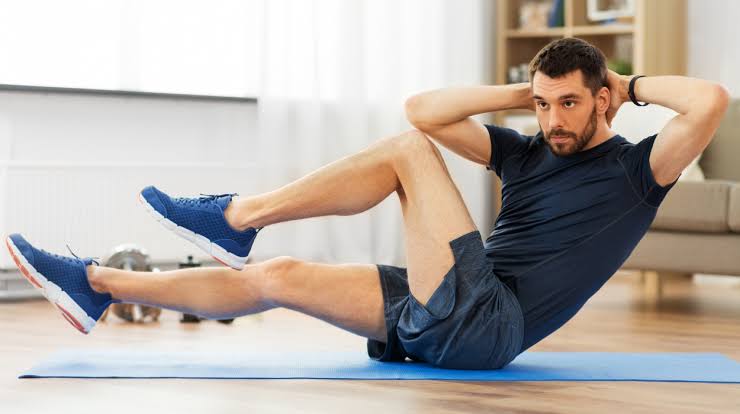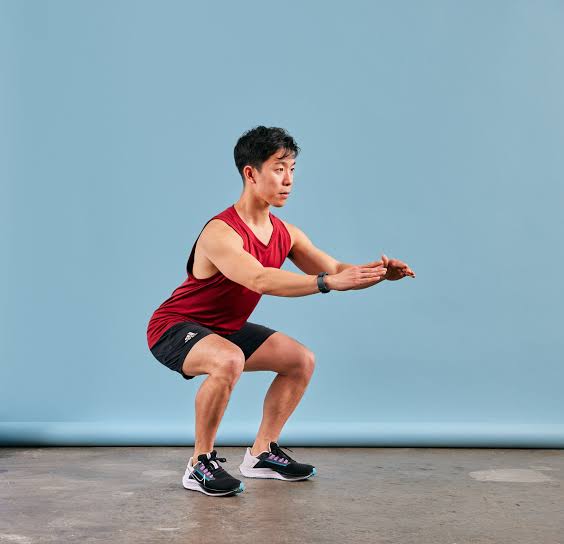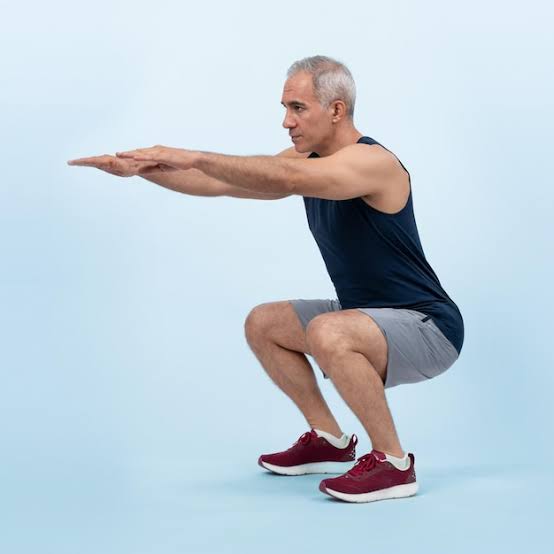Health
Unmistakable Signs You’re Not Getting Enough Sleep

We all know sleep is important. But sometimes, life moves fast and before you know it, you’re trading hours of rest for work, worry, or scrolling through your phone deep into the night.
The thing is, your body keeps the score. And whether you realize it or not, it starts sending signals when you’re running on less sleep than you need.
These are not just “tired eyes” or a “lazy mood” these are real, unmistakable signs that your body is begging you to slow down and rest.
Let’s break them down.
1. You Wake Up Feeling Just as Tired
One of the clearest signs of sleep deprivation is “even after 8 hours of sleep, you still wake up feeling like you haven’t had enough rest.” This isn’t always about how long you sleep, but how well.
Interrupted sleep or poor sleep quality can leave your brain and body in survival mode, instead of recovery mode. You shouldn’t feel like you’ve been hit by a truck every morning.

2. You Struggle to Focus on Simple Things
If you find yourself rereading the same sentence five times, losing your train of thought mid-conversation, or zoning out in meetings.
you might not just be distracted. Your brain’s ability to concentrate and process information is one of the first things affected by poor sleep. It’s like trying to run an app on 1% battery.
3. You’re Moody, Irritable, or Emotionally Sensitive
Little things feel bigger when you’re tired. You snap at people. You feel overwhelmed more easily. You cry over something you’d usually brush off. Lack of sleep affects the emotional centers of your brain, making you more reactive, less rational, and more vulnerable to stress and anxiety.
4. Your Cravings Are All Over the Place
When you’re not sleeping well, your hormones go out of balance especially the ones that control hunger. You might crave more sugar, carbs, or snacks late at night or first thing in the morning. Your body is trying to compensate for the energy it’s not getting through rest.

5. Your Immune System Takes a Hit
Are you catching colds more often? Feeling rundown all the time? When sleep suffers, so does your immunity.
Your body does most of its healing and defense-building while you sleep. Without enough of it, your body’s defenses drop and you’re more likely to getq sick, inflamed, or fatigued.
6. You Rely on Caffeine to “Feel Normal”
One cup of coffee in the morning is fine. But if you need three or four cups just to stay upright
or you’re drinking energy drinks daily just to feel functional, that’s a red flag. Your body is exhausted, and caffeine is just masking the issue instead of fixing it.
7. Your Skin Looks Dull or Breaks Out More
Sleep is when your skin repairs itself. Miss out on it regularly, and you may notice dullness, puffiness, dark circles, or more breakouts than usual. No serum or face wash can replace what your skin naturally does while you’re asleep.
So, What Can You Do?
The solution isn’t always “sleep more” sometimes, it’s about sleeping better. Create a routine. Cut down on screens before bed.
Avoid heavy meals late at night. And more importantly, give yourself permission to rest. You don’t have to earn your sleep. You need it to show up as your best self.
Because when you sleep better, you think clearer. You feel lighter. You look healthier. And life just feels a little less heavy.
Conclusion
If you noticed three or more of these signs in your life recently, your body is sending you a message and it’s not whispering, it’s yelling.
Rest is not a luxury. It’s survival. Don’t wait until your body crashes before you listen. Start honoring your sleep like you would any other important meeting
Because, in many ways, it’s the most important one.
Read Next Post: Spa Treatment for Hot Harsh Weather
Health
The Most Powerful Antioxidants That Slow Aging

Time never stops, but the way it shows up in our skin, energy, and overall health isn’t only about age, it’s also about how we take care of ourselves. Antioxidants play a big part. They protect our cells from daily stress, pollution, and sunlight. Here are a few key ones that can help slow down the signs of aging.
Vitamin C
This is your skin’s best friend. Vitamin C is like the encouraging coach that tells your skin to produce more collagen, keeping it firm and bouncy.
Vitamin C helps your skin stay firm by supporting collagen. It also guards against sun damage and keeps your skin from looking dull. You can get it from citrus fruits, berries, and even bell peppers.

Vitamin E

Vitamin E works with vitamin C to keep your skin soft and healthy. It helps your cells stay strong. You can find it in nuts, seeds, and leafy green vegetables.
Resveratrol
Resveratrol is a plant compound in red grapes and berries. It supports heart health, may help you live longer, and calms inflammation that makes aging faster.
CoQ10
Your body produces CoQ10 naturally, but less as you get older. It helps your cells turn food into energy while fighting off damage. Fatty fish and organ meats are natural sources.
Carotenoids
Carotenoids are what give carrots, sweet potatoes, and spinach their rich colors.
Polyphenols

Found in tea, coffee, and dark chocolate, polyphenols support circulation, sharpen your mind, and reduce stress on the body.
Glutathione
It helps flush out toxins from your body and keeps your immune system strong. You can give it a boost by adding simple foods like garlic, onions, and broccoli to your meals.”
Simple Ways to Get More Antioxidants
Eat more colorful fruits and veggies.
Add nuts and olive oil to your meals.
Choose green tea instead of sugary drinks.
Read Next Post: Perfume 101: 4 Scents Guaranteed to Get Compliments Before October
Health
Fibermaxxing—How Experts Say It Supports Digestive Health Wellness

Fibers come from real plant food such as vegetables, whole grains, fruits, beans, seeds, and nuts. It can also be obtained from its supplements. So Fibermaxxing, simply put, means making fiber a consistent part of your daily meals to support gut and overall health.

Health fiber food -Pinterest @lizaluxe’s
Why is it beneficial
Here are the main reasons experts say you should eat fiber.
Feeds good bacteria: By consuming a lot of fibre and different kinds of it, you’re giving the healthy gut bacteria lots of food to grow on.
May Help With Weight Loss: Adding it to meals and snacks has many advantages, one of which is that it makes you feel satisfied in between meals and might lessen overeating tendencies.
Helps with constipation: High quantity softens and increases the size and weight of faeces. It aid in the solidification of loose, watery stools. This is because fibre absorbs water and increases stool volume.
Lowers Cholesterol and Controls Blood Sugar: The soluble found in beans, oats, flaxseed, and oat bran may help the body avoid absorbing some of the cholesterol in other foods. As a result, bad cholesterol may decrease. Also assist in regulating blood sugar level and also help diabetic patients lower their blood sugar. Promoting a healthy heart and preventing diabetes.

Ways to add fiber to your meal – Pinterest @ Max B
Easy Ways To Include Fiber In Your Meal
Remember, too much of anything is not good. Add fiber slowly so your body can adjust. If you increase it too quickly, it can overwhelm digestion and cause gas, bloating, diarrhea, or cramping. Gradual changes help prevent these issues.
- Try to make sure every meal contains either fruits, vegetables, or both. For example, add veggies to lunch and dinner, and fruit bowls for breakfast. Also when you want to snack, let fruit be your focus, nuts, and seeds. You can include them in other dishes like stir-fries, salads, and yoghurt.
- Switch to whole grains. Let at least half of your daily grain intake be whole grains. Select breads that contain a minimum of 2 grams of fibre per serving. The first ingredient listed on the label should be whole wheat, whole-wheat flour, or another whole grain. Additionally, try other whole grains like quinoa, brown rice, wild rice, buckwheat, and whole-wheat pasta.
- Legumes such as beans, peas, and lentils are excellent fiber sources. Add them to soups or salad. Prioritize whole-food sources of fiber over supplements whenever possible.
- Make sure you consume whole food fiber rather than supplement fiber.
Simple way to add fiber to your diet today:
- Whole-grains such as barley, bulgur, brown rice, and whole-wheat bread or pasta.
- Fruits.
- Vegetables.
- Beans, peas, and other legumes.
- Nuts and seeds.
For Women it is medically recommended that 21 grams are for those older than age 50 and 25 grams for women age 50 or younger.

Healthy plate of fiber -Pinterest @Emy
Conclusion
For a happier gut, better digestion, steady blood sugar, and lower cholesterol, eat more fiber the smart way daily and mostly from plants.
Note: if you have existing health problems like IBS or small- bowel issues consult with a gastroenterologist or dietician before fibermaxxing.
also read: Healthy Eating on a Budget – Affordable Nutrition Options in the UAE
Health
4 Reasons Why Shorter Workouts Might Give Results

I used to believe a solid workout meant spending hours at the gym. Where it is long enough to sweat buckets, and you can feel every muscle ache, pushing yourself to the limit. Think about it, life gets more busy, you don’t have all the hours to spend in a gym house. These days, you can get a solid session done in 20 minutes, and honestly, it works. You can’t drift off, scroll on your phone, or take long breaks. You just go, move from one exercise to the next. By the end of the session, there’s sweat, a racing heartbeat, and a strong sense of accomplishments.
Focused Movement

With limited time, every exercise becomes focused. You don’t have hours to waste, so you pay attention to form, effort, and breath. That single-minded approach strengthens both body and mind, it’s about doing things properly rather than doing them for longer.
Quick Cardio Gains

Imagine the sun just starting to peek over the city skyline. The streets are quiet, but your legs are moving fast, up a flight of stairs, along the empty promenade, your breath coming in sharp bursts, so twenty minutes feels short, almost too short, but every step, every push, every movement hits a bit harder than you expect. By the end, your heart is racing, your muscles are awake, and somehow, it’s enough. More than enough. Short workouts are all about making every second count. They take what might feel like a small effort and turn it into something that builds strength, stamina, and momentum you can carry through the day.
Strength Without Burning Out

Shorter workouts push the body just enough without draining it completely. There are Moves that work multiple muscles at once—like squats, rows, or push-ups, they make every minute count. Because energy isn’t wasted, it’s easier to stay consistent and keep training day after day
You Stick With It
Perhaps the biggest advantage is consistency. Fifteen-minutes is realistic. It’s something that fits easily into a busy day—before work, between meetings, or once the kids are asleep. Once it becomes routine, even these short sessions start to add up, creating real, noticeable results over time.
Conclusion
You don’t need to spend hours in the gym to be fit, that small tasks and work out can really make a difference. Remember it’s more of intensity and less of duration.
Read Next Post: Lil Nas X Hospitalized After Los Angeles Arrest
-

 Top Xclusiv4 weeks ago
Top Xclusiv4 weeks agoAriana Grande Brings Vintage Hollywood to the Wicked: For Good Paris Premiere
-

 Skin Care5 months ago
Skin Care5 months agoSalmon DNA Facials: The New Secret to Glass Skin
-

 Movies5 months ago
Movies5 months agoDownton Abbey: The grand Finale Trailer Review
-

 Movies4 months ago
Movies4 months agoAfter the Hunt Trailer Review
-

 TV Shows4 months ago
TV Shows4 months agoForget Brunch Plans These Camping Spots Will Reset Your Soul
-

 Nails4 months ago
Nails4 months agoK-Beauty Rosewater Nails Are Summer Trend Everyone’s Asking For
-

 Deco4 months ago
Deco4 months agoInterior Art Design Ideas That Will Transform Your Home
-

 Entertainment1 month ago
Entertainment1 month agoEddie Murphy Peels Back the Curtain in New Documentary Trailer “Being Eddie”











